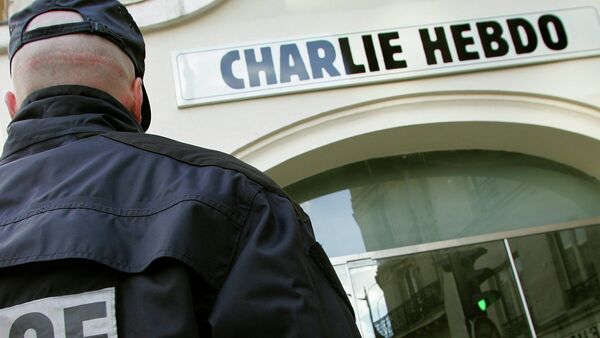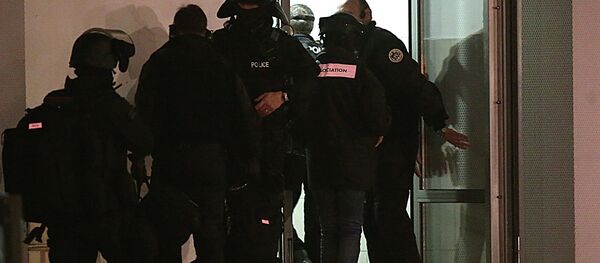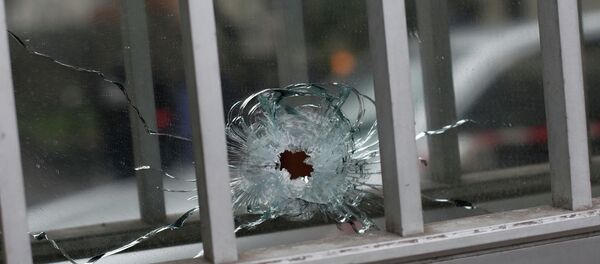WASHINGTON, January 8 (Sputnik) — The terrorist attack on the French satirical magazine Charlie Hebdo was well-organized and planned, heightening concern that conflict in Syria and Iraq could be having a jihadist blowback in Europe, a terrorism expert at North-eastern University told Sputnik.
“The attack in Paris is much more serious attack because there are multiple assailants and they seem quite professional both in terms how they committed the attack as well as their escape plan,” Max Abrahms said. “So there are very real concerns about whether these assailants had spent time in, say Syria, which has been a huge concern for the international community.”
“That may be what we are looking at today in Paris,” Abrahms said. “If so, this would be the first major attack of jihadists returning from that conflict zone.”
Abrahms said the attackers’ motive is unclear, but suggested it could be retribution for French foreign policy or an attack on “the French way of life and democracy.” France has been active in global counter-terrorism operations, not only Iraq and Syria but also in leading operations in West Africa.
The international community will rally around France, Abrahms said, adding that the French resolve to battle terrorism will also harden.
“Terrorism has a unique way to bring together the international community,” he said. “All countries, not just democracies, when attacked by terrorists tend to go on the offensive.”
He predicts that there could also be a backlash in France against the six million Muslims in the country.
“It’s possible terrorists want the French to overreact and that they want to the French public and authorities to further ostracize the Muslim community there, because then that Muslim community is more likely to become radicalized,” Abrahms said.
Joseph Young, an associate professor at American University and researcher at the National Consortium for the Study of Terrorism and Responses to Terrorism, told Sputnik that Europe is more vulnerable to attacks than the United States.
“Whereas in the US there are probably only a couple hundred people have gone to Syria and Iraq, those numbers start to bloom in Europe and so the likelihood that anyone of those is going to be violent starts to increase,” Young said.
“In Europe I’d be much more concerned about this kind of event [in France] being more regular than in the US,” Young said.
Young agreed with Abrahms, saying there is concern not only of an increase in Islamist attacks on “soft targets in Europe,” but also provocation of far-right extremists in Europe. This could lead to retaliatory attacks and the ostracism of Muslims in Europe.
On Wednesday, two gunmen opened fire inside the Paris office of the satirical weekly magazine Charlie Hebdo. Twelve people were killed, including the magazine's editor Stephane Charbonnier.
A third individual possibly acting as the get-away driver was also involved, French authorities said. The attackers exchanged fire with police before fleeing the scene. A manhunt continues in Paris as security is heightened across the country.
Charlie Hebdo previously received threats from Islamists. The magazine's office was fire-bombed in 2011 after publishing controversial cartoons depicting the Prophet Muhammad.



